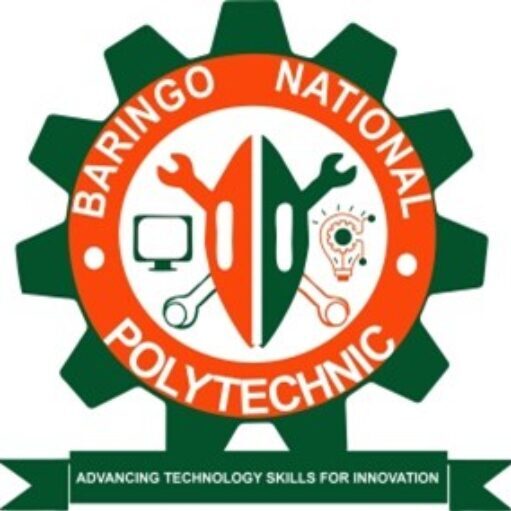Baringo Technical College (BTC) is a tertiary (middle-level) institution established on a 17-acre land off the Kabarnet – Tenges Road 6 Km from Kabarnet Town, in Baringo County. BTC is established under the TVET Act of 2013. The College’s operations are carried out in accordance with Government policies and procedures as spelt out in legal and regulatory documents as well as other official documents and circulars. The implementation of programs in the institution takes into cognizance existing national and international legal and policy guidelines, for instance the Constitution of Kenya 2010, Sustainable Development Goals (SDGs) and national policies on Industrialization by the Year 2020, the Kenya Vision 2030, the Big Four Agenda and the Medium Term Plan III (MTP III), among others. It is geared towards playing a significant and leading role in the fulfilment of its mandate.
The construction of the initial physical facilities of the Baringo Technical College was based on funds collected through a fund raising drive involving civil servants, teachers, farmers and other members of the community. Because there was no board or committee to manage and supervise the project, the provincial administration managed the project on behalf of Stakeholders. The piece of land on which this college stands is part of the small Kabereke/Kamgoin Forest. In order to promote environmental protection, clan elders living within the neighbourhood acted as trustees and managers of the forest and land.
In 1982 Baringo Central community elders and the local leaders met the second President of the Republic of Kenya, Daniel Toroitich Arap Moi to present their request to expand the acreage of the College by acquiring land from neighbours. He accepted their proposal and gave orders for a land compensation plan. The construction of the College subsequently began in 1985 but slowed and stopped intermittently due to lack of funds. It was not until September 2012 that the College opened its doors for the first batch of 9 students getting admission in January 2013.
In line with its mission to provide quality human resource through vocational and technical training for the global market, BTC has produced graduates who match the competitive needs of the work place since its inception. The College offers a variety of courses at Diploma, Craft and Artisan levels targeting Kenya Certificate of Primary Education (KCPE) and Kenya Certificate of Secondary Education (KCSE) graduates. Currently, the College offers a total number of 26 courses spread across six admitting departments as summarized in Table 1.
Table 1: Courses Offered at Baringo Technical College
| Department | Course | Levels |
| Agriculture | General Agriculture | Craft, Diploma |
| Building, Civil and Electrical Engineering | Electrical Wireman | Artisan |
| Electrical and Electronics Engineering | Craft, Diploma | |
| Masonry | Artisan | |
| Building and Construction | Craft, Diploma | |
| Mechanical, Automotive and Petroleum Geoscience | Motor Vehicle Mechanic | Artisan |
| Automotive Engineering | Craft, Diploma | |
| Petroleum Geosciences | Craft, Diploma | |
| Welding and Fabrication | Artisan | |
| Mechanical Engineering | Craft, Diploma | |
| Hospitality, Nutrition and Dietetics Management | Food and Beverage | Artisan, Craft, Diploma |
| Garment Making | Artisan | |
| Fashion Design | Craft, Diploma | |
| Hair Dressing and Beauty Therapy | Artisan | |
| Nutrition and Dietetics Management | Craft, Diploma | |
| Catering and Accommodation | Craft, Diploma | |
| Information Communication Technology | Information Communication Technology | CBET Level 5, Craft, Diploma |
| Information Science | Craft, Diploma | |
| Computer Science | Diploma | |
| Business | Accountancy | Diploma |
| Banking and Finance | Diploma | |
| Business Management | Craft, Diploma | |
| Cooperative Management | Craft, Diploma | |
| Human Resource Management | Craft, Diploma | |
| Store Keeping | Artisan | |
| Supply Chain Management | Craft, Diploma | |
| Social Work and Community Development | Craft, Diploma | |
| Computerized Secretarial | Craft |
In line with emerging national and global dimensions in the implementation of TVET programs, BTC is introducing CBET (Competency Based Education and Training) programs. CBET marks a shift to a market-driven and output-based model of TVET where the outcomes of vocational training are measured as acquired competencies in knowledge, skills, personal attitudes and values. During the plan period, the College shall gradually transit to CBET in line with guidelines provided by the TVET Curriculum Development Assessment and Certification Council (CDACC).
